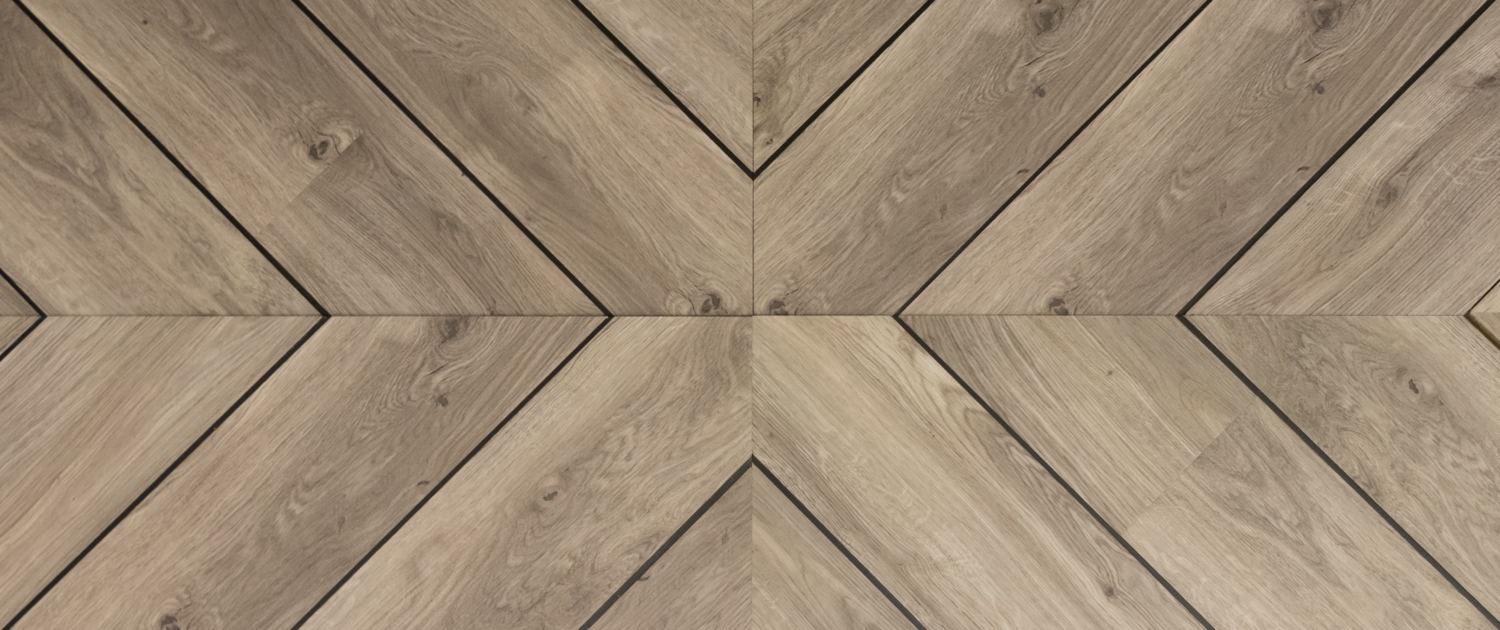Luxury Vinyl Planks Vs. Engineered Hardwood

Geometric wood pattern. Photo taken by Mitchell Luo.
Choosing flooring to best help suit a home’s needs can be one of the most tedious tasks during the interior design process. While laying down tile is a more permanent option for a bathroom or kitchen, Luxury Vinyl Planks and Engineered Hardwood are more popular options for almost any room in the house. Both are often wagered which would best pull a room together with a simple and seamless finish while getting the most out of the cost.

Toolset on a wooden floor. Photo taken by Milan Popovic.
What are we working with?
Engineered Hardwood is composed of multiple layers of wood and is about 3/4 inches thick, rather than solid wood that is mostly made of just one solid piece. It’s more durable than solid wood but is more prone to chipping and scratching over time.
Vinyl Planks are slim and range from a thickness of 2mm to 8mm. Its thin frame makes for easy maintenance but can also be prone to more damage.
Before installation, measuring the square feet of the room before putting down flooring is a must.
However, unlike the lay and glue or snap and lock process for Vinyl Planks which is very DIY friendly, Engineered Hardwood will require a little more elbow grease to get the job done.
After measurements, it is advised that an underlayment is placed over the foundation of the room before the engineered hardwood is laid down. Some underlayment options include tar paper, plywood or cement. The underlayment will protect the floor underneath the hardwood from any potential water damage.
Vinyl flooring does not require an underlayment since most of the planks are manufactured with a pre-made barrier at the bottom of each plank. Underlayment is suggested for Vinyl Planks only to promote noise reduction.
Installation options include glue, nails or staples, or floating installation, which is the most popular. Floating installation works for both Vinyl and Hardwood flooring. All it requires is a bit of glue or staples once the planks are laid in order to keep them secure.
What’s the damage?
While Engineered hardwood is thick enough to withstand certain day to day pressures of home life, the surface and the core of the wood determines the lifespan of the material.
During production, the wood is coated and treated to help resist water damage. Though the mess of spills and grime may be easy to clean from the surface, the moisture from any mess can seep into the seams of the planks and soak up the moisture overtime. This will cause the plank to swell and expand, resulting in water damage and potential plank replacement.
A higher quality of engineered hardwood can decrease the chances of encountering water damage because it contains more layers. High quality hardwood floors are 8 ply thick and have more resistance to moisture.
More styles of Luxury Vinyl are being released with water resistant cores that allow Vinyl to be placed in almost any room of a house without much worry over water damage. This pre-added beneficial feature has boosted Vinyl’s popularity in choice.
The most damage Vinyl will encounter are dents caused by moving or dropping of heavy furniture. Although Engineered hardwood and Vinyl are both pet friendly, tears in the surface of the vinyl material can be caused by pushing or pulling of heavy furniture or sharp nails of pets.

A photo taken behind a man working with wood. Photo taken by Ian Schneider.
Style Choice?
With limitless options of Luxury Vinyl brands to choose from, it is the genuine nature of the Engineered Hardwood that keeps others from slapping vinyl down in their homes. When style steps in, both floor types offer a wide range of colors and patterns to fit almost any in-home layout that comes to mind. It can be difficult to decide whether or not to install an authentic Smokey hardwood or a luxury Vinyl Ash wood to compliment a selection of furniture.
Engineered Hardwood offers more classic color options and types like Walnut, Oak, Birch, Ebony, Maple, Mahogany and the like. Though Luxury Vinyl can replicate the texture and finish of engineered hardwood, the overall appearance of the vinyl will give away its true makeup.
Vinyl flooring comes in sheets, tiles or planks. Engineered hardwood also comes in planks. Both floor types can be cut to accommodate any room size.
What’s the cost?
Luxury Vinyl planks will cost anywhere from 2 – 5 dollars per square feet depending on the brand and style of vinyl. Engineered Hardwood planks will cost homeowners 3 – 5 dollars or 5 – 10 dollars per square feet for a higher quality of wood.
You can find Luxury Wood planks and Engineered Hardwood at any local department store. If not, then a quick online search will throw you into the world of custom styles to your liking. Whether a satin, matte or oil finish, wood flooring has got your foundations covered.

Curtain draped over wood floor. Photo taken by Tom Rumble.
So . . .
With near endless options, both floors have their flaws and benefits to fit your home, but which flooring can withstand the tussle and tear of time? That depends on the style elements of your home and which would best fit your homes needs.
It could be the authentic feel of a rustic cabin near the trees with an Engineered Hardwood Oak finish or the classy atmosphere of brown wood vinyl over Sunday morning coffee. The choice is yours.
We at Satin & Slate have a wide variety of options that can help you with your next interior project. Don’t worry, we’ll help you sweat the big stuff.
About Us:
Founded in 2017, Satin and Slate is one of the elite interior design studios in Southern California. Located in Long Beach, this dedicated team of designers oversees from kitchen and bathroom renovations to commercial projects. Equipped with their own showroom/studio they can satisfy the needs of any client. Featuring clean lines, bright colors and fresh ideas Satin and Slate’s mission is to bring your vision to life and help transform your space into something extraordinary.



 Whirlpool
Whirlpool https://stocksnap.io/photo/home-house-87ONRC5PWV
https://stocksnap.io/photo/home-house-87ONRC5PWV